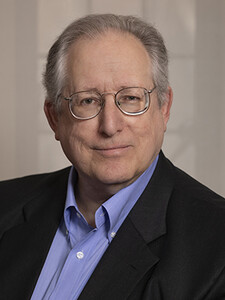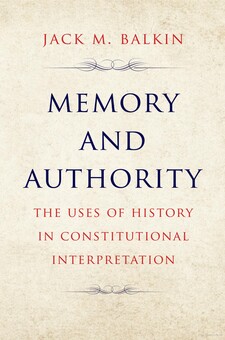The Constitution and Collective Memory


In his new book Memory and Authority: The Uses of History in Constitutional Interpretation (Yale University Press, 2024), Jack M. Balkin argues that debates about constitutional interpretation are often debates about collective memory — the stories that members of a community tell each other about the meaning of their shared past. Lawyers and judges are memory entrepreneurs; they try to persuade people to remember things differently. Each of the familiar forms of constitutional argument produces constitutional memory, engaging in a mixture of remembering and forgetting. Lawyers and judges construct — and erase — memory to lend authority to their present-day views; they make the past speak their values so they can then claim to follow it.
Balkin, the Knight Professor of Constitutional Law and the First Amendment at Yale Law School, explains how the standard forms of legal argument shape how lawyers and judges employ history and what they look for in history. Lawyers and judges’ use of history is rhetorical, aimed at persuading audiences. They invoke the past to establish the authority of their positions and to undermine opposing ones. “[T]here is no single modality of ‘historical argument,’” Balkin writes. “Rather, history is useful for making many different kinds of constitutional arguments, and the way that people use history is shaped by the kind of argument they are making.” By understanding how lawyers channel the past through standard forms of argument, historians can better join issue with lawyers about historical issues in constitutional interpretation.

Originalism and living constitutionalism seem to be opposed approaches to the past. But Balkin argues that they are actually mirror images of a single phenomenon — how lawyers use history to adapt an ancient constitution to a constantly changing world. Americans are “cafeteria originalists” who alternatively employ and ignore originalist arguments as the issues before them change. That is because in constitutional interpretation, history is a resource, not a command. Balkin argues that the best account of constitutional interpretation is a “living originalism” that remains faithful to the Constitution’s basic framework of rules, standards, and principles while leaving room for each generation to construct constitutional doctrine in their own time.
Because originalist arguments appeal to the nation’s cultural memory, non-originalists should make them too. Nevertheless, Balkin reminds us, the country’s history is far broader than the history of its framers and adopters, and so the resources of collective memory are far greater. People excluded from constitution-making and the many social movements following the adoption of the Constitution and its amendments also have made important claims about the meaning of the Constitution. If they have something to teach us, they can still be makers of constitutional meaning for us today.
A member of the American Academy of Arts and Sciences and the American Law Institute, Balkin has authored more than 150 articles and produced 15 books spanning a wide range of fields, including constitutional theory, freedom of speech, law and technology, reproductive rights, jurisprudence, and the theory of ideology. In addition to serving as the Knight Professor at Yale, Balkin is also the founder and director of Yale Law School’s Information Society Project, an interdisciplinary center that studies law and new information technologies. He also directs the Abrams Institute for Freedom of Expression and the Knight Law and Media Program, both at Yale Law School.


